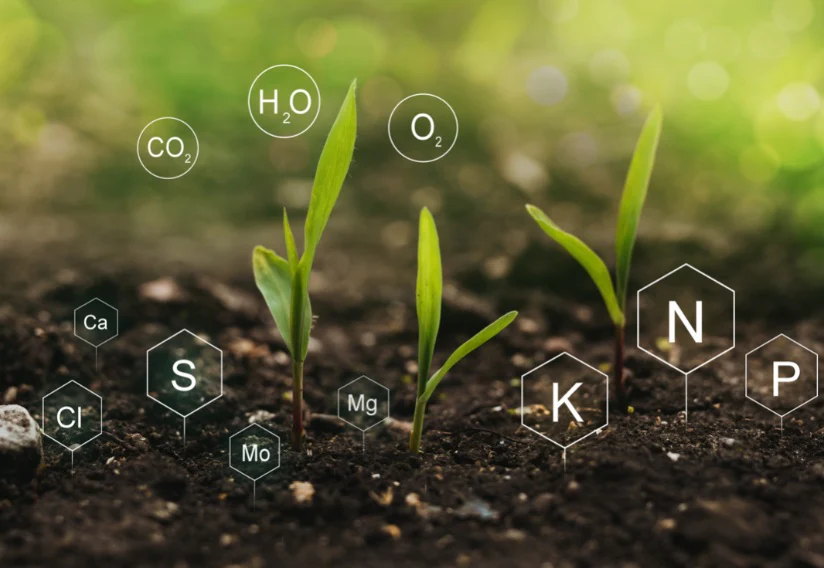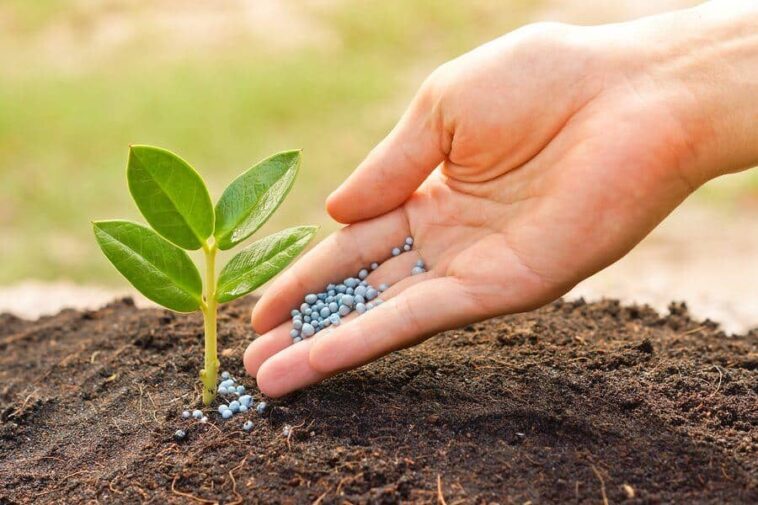Why do farmers, gardeners, and landscapers prefer non-synthetic organic fertilizers? Organic fertilizers provide a safe way to grow beautiful and healthy crops without damaging the environment. These fertilizers are gradually gaining popularity among people who want to improve the health of their plants as they discover their long-term benefits. One outstanding advantage of going organic is conserving the environment and avoiding chemicals that could adversely affect people and wildlife.
Generally, plants need carbon, oxygen, nitrogen, and oxygen to grow, regardless of the sources of these elements. The ratios of these elements vary depending on the type of fertilizer used. Plants also need potassium for resistance against pests and diseases, nitrogen for healthy green foliage, phosphorus for strong roots and flowers, and sulfur for attractive greener leaves. So why should farmers choose organic fertilizers if plants can get these nutrients from both chemical and organic fertilizers? This article highlights the benefits of using organic fertilizers instead of synthetic fertilizers.
Improve Soil Quality
Organic fertilizers help improve the soil’s structure, provide essential nutrients, and improve water retention. These are the qualities that plants need to grow healthy and flourish. Good soils contain many organic materials, usually from other plants and animals, which help balance essential nutrients. Since soil quality is critical, farmers and gardeners should order quality fertilizer from southlandorganics.com to enjoy this benefit.
Low Environmental Impact

Organic fertilizers do not contain harmful chemicals such as heavy metals, which are toxic to the environment, animals, and humans. Therefore, switching to organic fertilizers minimizes toxic buildup in the soil, which often leads to water pollution. Besides, natural materials used to make organic fertilizers break down gradually without releasing harmful elements that pollute the soil or water sources.
High Soil Nutrient Retention
Natural materials help create a balance of crucial nutrients needed for the healthy growth of plants. Therefore, organic fertilizers help retain important nutrients and improve soil fertility. This means that farmers of gardeners who usually apply organic fertilizers can grow healthy plants for a long time without frequent fertilizer application.
Healthy Roots and Fast Growth Rate
Quality organic fertilizers help boost the development of roots, which are critical for healthy plants. Unlike synthetic fertilizers, which release essential nutrients quickly, non-synthetic organic fertilizers release nutrients gradually for a long time. This means that the plants get the nutrients they need uniformly and consistently. Additionally, organic fertilizers rarely burn or damage the roots, unlike synthetic fertilizers, which might cause root damage.
Provide All Essential Nutrients in Balanced Quantities

The availability of essential nutrients determines how healthy the plants will grow. Unfortunately, some gardeners don’t understand this, explaining why they use ineffective fertilizers. Organic fertilizers provide carbohydrates, proteins, nitrogen, potassium, and phosphorus for growing plants. They also provide micronutrients, including copper, nickel, selenium, and molybdenum. Gardeners should always test their soils using synthetic fertilizers or switch to organic fertilizers to ensure a balanced supply of essential nutrients.
More Affordable Than Inorganic Fertilizers
Although making organic fertilizers at home attracts some costs, homemade fertilizers such as compost, vermicast, comfrey tea, and compost tea are generally more affordable than synthetic options. Besides, organic fertilizers have long-term benefits since they break down slowly. Why should farmers buy expensive synthetic fertilizers that have short-term benefits?
Introduce Beneficial Microbes
Besides providing the nutrients plants need to grow healthy, organic fertilizers introduce bacteria and microbes, gradually breaking down natural materials into usable nutrients plants need. The microbes also help decompose organic matter, improve soil structure, and boost soil fertility. However, inorganic fertilizers only provide the nutrients plants need and do not contain the microbes that enhance soil quality over time.
Less Fertilizer Needed
Unlike inorganic fertilizers that provide nutrients directly to plants, organic fertilizers use gradual and natural ways to feed plants. Therefore, non-synthetic fertilizers have a long-term impact, reducing the need for artificial application of fertilizers. The farmers spend less time, money, and labor applying fertilizers.
Organic Fertilizers Come From Natural Materials
Popular organic fertilizers come from natural materials such as animal by-products, plant-based compounds, organic manure, and bone meal. Raw materials rarely introduce chemicals into the soil. They also promote the growth of healthy leaves, roots, and flowers. Farmers can make quality fertilizer using kitchen waste, such as apple cores and vegetable peels, which provide essential nutrients for their lawns or gardens. The fertilizer provides the nutrients needed for the healthy growth of plants and boosts the potential of the flowering ones when the booming season comes.
Prevent Pests and Diseases Naturally

The natural materials used to make organic fertilizers are usually resistant to pests and diseases. For example, they can resist insects and fungi, the two major plant threats. Additionally, the organic materials attract helpful microbes, which depend on micronutrients to stay healthy and improve soil quality. Therefore, organic fertilizer saves money in the long run by reducing the need for herbicides and pesticides.
Farmers Can Make Their Organic Fertilizers
Inorganic fertilizers require expensive chemicals and complex processes to provide plant nutrients. This makes these fertilizers expensive. Additionally, producing and distributing synthetic fertilizers leads to environmental pollution at various stages. However, farmers and gardeners can make quality organic fertilizers using locally available natural materials. They can also buy from daily farmers or local sellers, creating a sustainable chain of benefits for the locals.
Low Risk of Over-Fertilization
Farmers using synthetic fertilizers must be careful to avoid applying too much of it quickly. Since synthetic fertilizers release nutrients fast after application, there is a high risk of over-fertilization, which could damage the crops. However, organic fertilizers rarely upset the ecosystem because they release nutrients slowly, reducing the risk of over-fertilization.
Although organic and inorganic fertilizers support plant growth, organic fertilizers offer more long-term benefits to farmers and gardeners. They provide macronutrients and micronutrients plants need and are not harmful to humans, animals, or the environment. Farmers can make organic fertilizers using locally available materials, translating to cost benefits. Organic fertilizers have microbes that improve soil structure and fertility. That said, farmers should consider switching to organic fertilizers to enjoy these long-term benefits and avoid the buildup of toxic chemicals.




